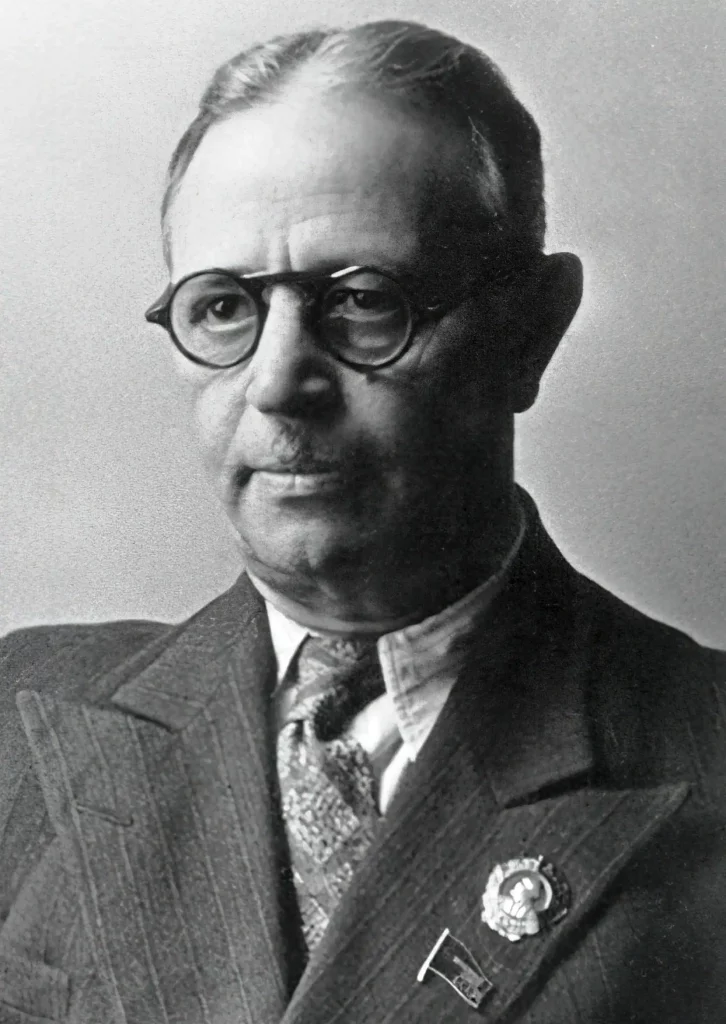Üzeyir Hacıbəyov (1885-1948) is celebrated as one of the most prominent figures in Azerbaijani music and culture. As a composer, conductor, pianist, and musicologist, he played a pivotal role in shaping the musical landscape of Azerbaijan and establishing its national identity through art. Hacıbəyov is best known for his contributions to opera and classical music, marking him as a significant cultural figure in both Azerbaijani and broader Eastern musical traditions.
Early Life and Education
Born on March 18, 1885, in the village of Agjabadi, Üzeyir Hacıbəyov was immersed in a musical environment from a young age. He studied in various religious and secular educational institutions, developing a deep understanding of music and literature. Hacıbəyov furthered his studies in music at the Conservatory in Saint Petersburg, Russia, where he honed his skills in composition and music theory.
Musical Contributions
Hacıbəyov’s most notable contribution to music is his role as the first composer of opera in Azerbaijan. His famous opera, “Leyli and Majnun,” premiered in 1908 and is based on the classic love story written by the Persian poet Nizami Ganjavi. The opera is a landmark work that combines traditional Azerbaijani melodies with Western musical forms, establishing a unique style that resonates with audiences to this day.
In addition to “Leyli and Majnun,” Hacıbəyov composed numerous other works, including operettas, symphonic music, and songs. His operas, such as “Asli and Karam” and “Arshin Mal Alan,” further exemplify his ability to fuse Azerbaijani folk music with classical compositions, which played a vital role in elevating the national musical identity.
Cultural Impact
Beyond his compositions, Hacıbəyov was a significant cultural figure in Azerbaijan. He was instrumental in the establishment of the Azerbaijani State Symphony Orchestra and the Azerbaijan State Academic Opera and Ballet Theater. Hacıbəyov also contributed to music education by founding several music schools and institutions, ensuring that future generations would have access to quality music education.
He wrote extensively on music theory and practice, helping to document and preserve Azerbaijani musical traditions. His efforts laid the groundwork for future musicians and composers in the region, fostering a rich musical heritage.
Legacy
Üzeyir Hacıbəyov’s influence extends far beyond his lifetime. He is revered in Azerbaijan as the “Father of Azerbaijani Classical Music,” and his works continue to be performed and celebrated both domestically and internationally. His commitment to integrating Western musical forms with Azerbaijani folk traditions created a new paradigm for future composers, allowing them to explore their national identity through music.
Hacıbəyov’s legacy is commemorated in various ways, including cultural events, festivals, and awards named in his honor. The Azerbaijan State Prize in Music, for instance, recognizes exceptional contributions to the field of music, reflecting Hacıbəyov’s enduring impact on Azerbaijani culture.
Conclusion
Üzeyir Hacıbəyov remains a monumental figure in the world of music, symbolizing the rich cultural tapestry of Azerbaijan. His pioneering spirit and dedication to his craft not only transformed the musical landscape of his country but also inspired countless artists worldwide. Through his operas, compositions, and educational initiatives, Hacıbəyov has secured his place as a beloved cultural icon whose legacy will continue to resonate for generations to come.



